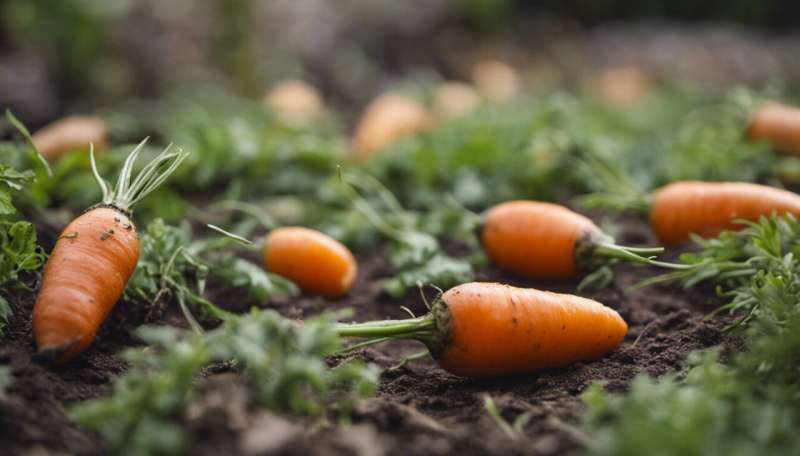Of crooked carrots and patchy potatoes: A food waste story

Food wastage is no longer acceptable—for both ethical and ecological reasons, says Claudio Beretta. But we've only just started cracking down on it.
Things are very Christmassy now, with baby Jesus and the festive meal only a few days away. It's an ideal moment to give thought to how we deal with food. Some ten years ago, food wastage hardly made headline news. The food industry swept the shady issue under the carpet, and a trawl through scientific literature for reports on food waste yielded little. Across the board, food donation organizations were the only ones saving edible food from hitting the garbage.
Things have changed. Food waste has become a hot topic in the local media, leaving the food industry no option but to take a stand and outline strategies for eliminating waste. Meantime studies on food waste abound, and politicians have placed the topic high on their agenda.
One reason for this is the UN Sustainable Development Goal 12.3: to halve per capita food waste at retail and consumer level by 2030 and to reduce food loss in agriculture and processing. In addition, a number of projects that directly or indirectly save food from being squandered have been launched independently here in Switzerland.
A fair amount's happening—but not enough
Observing the trend in recent years, you may wonder where we're at with food waste. Media coverage of the topic and the various enterprising initiatives justifiably raise hopes that we can get to grips with the problem. And surely this should be so in a country like Switzerland. But let's face it, we're only just getting started, as a closer look shows.
Today, 2.8 million tonnes of avoidable food loss occurs across all stages of the Swiss food supply chain. This corresponds to about 330 kg of avoidable food waste per person per year, or 37 percent of the agricultural production in Switzerland and abroad to cover Swiss food consumption.
To give you an idea of the scale of things: charitable organizations such as Tischlein deck dich, Schweizer Tafel and Partage save 10,000 tonnes of food each year throughout Switzerland. The almost 3,000 food savers at Foodsharing Switzerland save a further 200 tonnes each year. No mean achievement, in view of the extent of volunteer activities involved. But set these figures against the more than 300,000 tonnes of food waste generated in the Swiss food retail and restaurant sector alone, and they make up only a few percent.
Granted, there are one or two lighthouse projects, such as the Mein Küchenchef restaurant, where food is transported from farm to fork with practically no loss. But companies that avoid food waste in such an exemplary manner are still the exception rather than the rule.
An ambitious yet essential step
Let's make no bones about it: in these times of climate change and fragile ecosystems, squandered food is ethically, ecologically and financially unacceptable. I believe Switzerland must strive to achieve the UN Sustainable Development Goal 12.3. As consumers, we are key actors here: our food-related behavior and choices have an impact on the level of waste, not just in our households but in the entire food system.
Halving the amount of avoidable waste by 2030 would save between 9 and 15 percent of the climate effects of our diet, which corresponds to about 1.5 to 2 percent of the climate emissions of our total consumption. At first glance, this may not seem much. But there's hardly any other area where we can achieve so much through simple practices, such as taking a look in the fridge before going shopping, or packing leftover food in a reusable container for later.
While reducing food waste is only one of many essential measures for combating the climate crisis, much hinges on it. Those who realize that food in moderation makes us happier and healthier than food in bulk are well on the way to moderate, conscious consumer behavior.
It's time for a rethink, and rethinking always takes time. Perhaps the holidays at the turn of the year will present a moment to reflect on and become more aware of the urgently needed change. So rather than tossing out misshaped potatoes and crooked carrots, let's use them to garnish the festive meal! Not such an absurd idea after all. And on this note, I wish you all a happy low-waste holiday season.
More information: foodwaste.ch the independent Swiss information and dialogue platform on food wastage: foodwaste.ch/
A study commissioned by the Federal Office for the Environment (FOEN): www.bafu.admin.ch/bafu/de/home … en.msg-id-76808.html
Provided by ETH Zurich




















